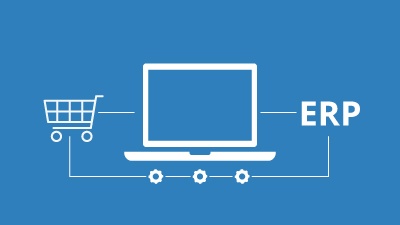How to Find the Right ERP Implementation Partner

Businesses must make sure they are choosing the right ERP software, but that’s not the only thing to consider — it’s also essential to find the right partner to implement the new cloud-based system. The partner a company selects can be just as important as the technology it runs. This is the first step toward moving to a new solution!
An ERP system impacts almost everyone in the organization, as well as most aspects of the business. Updating to a modern platform that allows for the collection, management, and distribution of information aligns the company in meeting its objective of satisfying customers while controlling costs and maximizing resources. Implementation of an ERP system simply has to be done correctly, as the operations of the business depends on its performance and reliability.
A lot depends on the implementation of an ERP system and finding the right experienced experts to guide the process successfully. A skilled and experienced partner will help a business to understand the system’s benefits and how to roll it out strategically across the organization.
Here are the top 7 factors to consider when choosing an ERP implementation partner:
A Strong Track Record
A potential partner should be able to provide references that speak to their work, ideally from similar companies within the same industry. Decision makers should reach out to the partner’s referrals and discuss how their implementations went — it’s also recommended to take the additional step to ask if someone from the company can visit and see how the ERP works in a live environment. The company the partner has supplied should be able to give unbiased feedback, as well as insights that can benefit the team through the implementation process. To cover all bases, read vendor case studies of successful implementations and do an online search that may turn up information, whether positive or negative. Finding an honest partner will alleviate unnecessary headaches.
Interested in learning more about Cloud 9's track record? View our testimonials and case studies.
Industry Understanding
An ERP implementation partner should have an outstanding reputation within the industry. Various industries have different requirements; the more the partner knows about the company’s vertical, the more they’ll be able to adapt the software to meet particular needs. Most businesses find they need to tweak out-of-the-box software to some degree, but finding a partner who understands what the company is trying to achieve will help streamline this process. This can help save in both time and cost. The partner will also have the advantage of being able to best advise a business on how to optimally use the product, while being up to date on any modifications that may need to be made to meet industry standards.
Our industry expertise includes:
- Manufacturing
- Wholesale/Distribution
- Professional Services
- Ecommerce
- Field Service
- Audio Visual & Security
Click each link above to learn more about each industry.
Necessary Resources
Finding a partner that has the bandwidth and insights to support the company’s size and scope is another key factor to weigh in on. For instance, if the company is global, the vendor should have experience handling ERP implementations that support multiple locales. How big is the team, and also how flexible is it? It’s important to know that the partner is ready for anything that could possibly occur during the ERP implementation.
Strong Communication
ERP implementations are complicated procedures that can take months or even years. It’s critical that the partner selected is able to communicate clearly and consistently. Consider where they are located and how telecommuting will work versus in-person meetings. Is the implementation team staffed with the partner’s A-Team? It’s essential that contacts respond quickly to concerns and then listen thoroughly, providing solutions that made sense to the company’s needs.
Positive Relationship with ERP Developers
Sometimes an ERP software developer handles its own implementations. Otherwise, it’s important that the partner have a good relationship with the company that develops the software, as they act as the intermediary between the their client and the software developer. If any issues arise or changes need to be made, strong communication between the implementation partner and the software developer can make the difference between success or failure.
Agile Methodology
It’s typical that new information will be brought to light through an ERP implementation. Ideas may change over time, and it’s essential that the ERP partner is able to modify the software and implementation process to meet the new demands — the implementation partner should be flexible and able to adapt to changing circumstances.
Understand Requirements
A business should be able to understand its own requirements, so it can ensure it’s fielding the right potential implementation partners. It helps to know: what techno-functional needs the business is wanting to achieve through the new ERP system; what machines, software, and other systems that will be either integrated into the ERP or replaced by the ERP; and what kind of user experience (UX) interface will suit the company culture. Things may change over time, but it’s important to be able to aptly communicate needs to the implementation partner so they can find solutions that meet expectations.
Getting Started
Verifying a potential implementation partner’s qualifications isn’t always easy, but it’s worth the effort to properly vet final candidates — a company’s success depends on it. To learn more, read our guide Choosing the Right ERP Implementation Partner.
Contact us to learn more about moving to a cloud-based ERP system and to schedule a free consultation, or to request a demo!


